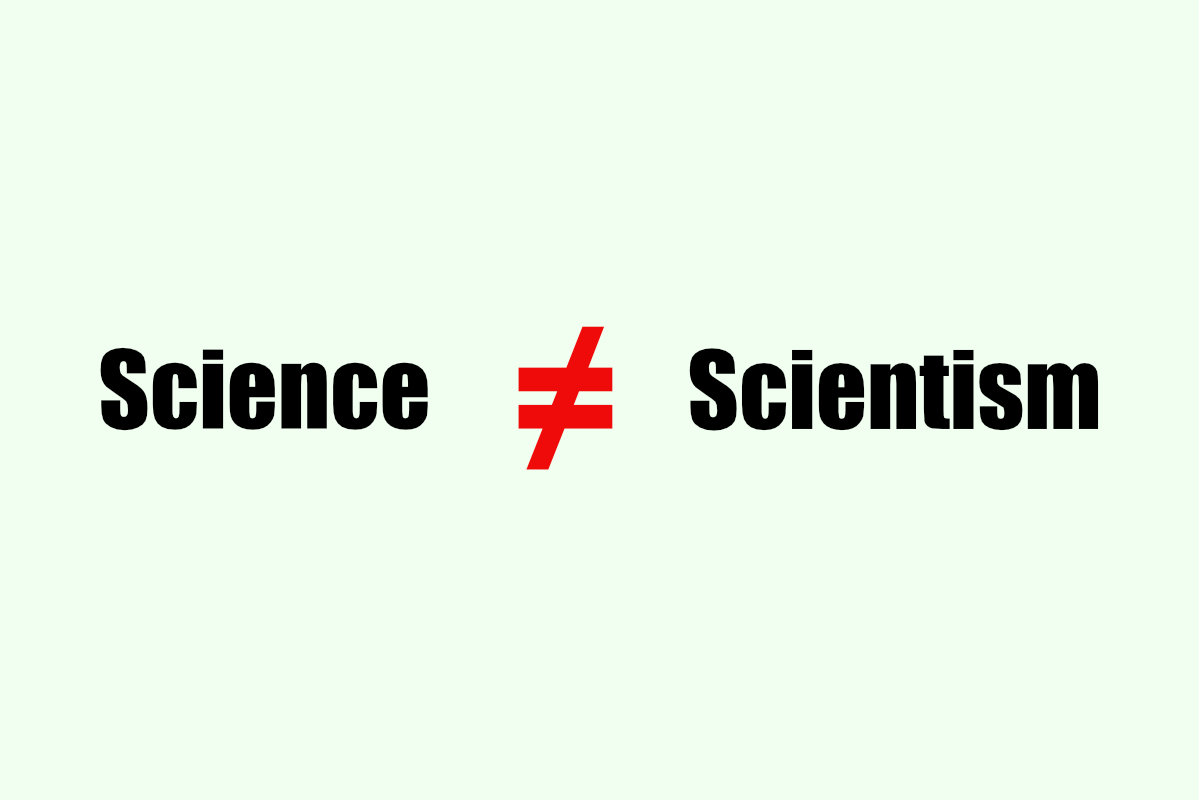We Need to Save Science from Scientism

The Big Picture: A troubling trend has emerged in recent years: the elevation of science to a near-religious status, a belief system often referred to as “scientism.” Scientism isn’t about valuing scientific inquiry and evidence-based reasoning but treating science as the ultimate arbiter of truth beyond questioning or critique. This trend appears in various sectors of society, from politics to journalism and even science.
The Politician’s Creed: When politicians declare, “I believe in science,” they often use the phrase to shut down debate and position themselves as champions of rationality. However, this approach risks simplifying complex scientific issues into black-and-white binaries. Science thrives on questioning, testing, and refining ideas. When used as a rhetorical weapon, it can stifle the very discourse that drives scientific progress.
The Journalist’s Catechism: Journalists, too, can fall into the trap of scientism. Quoting scientific studies without context or understanding can mislead the public. Reporting on a single study without acknowledging the broader scientific consensus or the study’s limitations can create a false sense of certainty. Science is not a monolith but a dynamic, evolving process that requires careful interpretation and critical thinking.
The Scientist’s Blind Spot: Scientists are not immune to the allure of scientism. When they become overly attached to specific theories or dismiss alternative perspectives without due consideration, they can inadvertently contribute to a dogmatic view of science. For instance, the initial resistance to the theory of plate tectonics in the mid-20th century is a classic example. Despite accumulating evidence, many geologists clung to older models of the Earth’s structure, impeding the acceptance of a now-fundamental scientific understanding. This resistance demonstrates how, even within the scientific community, there can be a reluctance to embrace new ideas that challenge the established paradigm.
The Problem with Certainty: The allure of scientism lies in its promise of certainty in an uncertain world. But actual science embraces uncertainty. It acknowledges that our understanding of the world is always incomplete and that new evidence can overturn established theories. We risk losing this essential humility and openness to new ideas by turning science into a dogma.
Examples of Scientism in Action:
- Public Health Policies: During the COVID-19 pandemic, authorities presented some public health policies as unquestionable because they were “based on science.” While evidence-based policies are crucial, officials sometimes downplay the evolving nature of scientific understanding, leading to public confusion and mistrust.
- Climate Change Debate: While there is a robust scientific consensus on human-caused climate change, communicating this consensus can sometimes border on scientism. It is essential to convey the evidence without dismissing legitimate questions and discussions.
- Technological Solutions: Another form of scientism is the belief that technology can solve all human problems without considering ethical, social, or environmental implications. This belief extends to the emerging AI industry as well.
Moving Forward: To save science from scientism, we must reclaim its true spirit.
- Embracing Complexity: Acknowledge the nuances and uncertainties inherent in scientific research.
- Promoting Scientific Literacy: Educate the public about how science works, including its limitations and the process of scientific inquiry.
- Encouraging Critical Thinking: Foster a culture where questioning and debating scientific findings is seen as a strength, not a weakness.
- Balancing Expertise with Humility: Recognize the value of expert knowledge while remaining open to new evidence and perspectives.
Closing Thought: Science is a powerful tool for understanding the world, but it is not infallible or complete. By resisting the urge to elevate it to an unquestionable dogma, we can ensure that science remains a dynamic, self-correcting pursuit that serves humanity’s quest for knowledge and truth. As invaluable as it has become, science, with its limitations, is not the only way of knowing about ourselves and the world around us.


